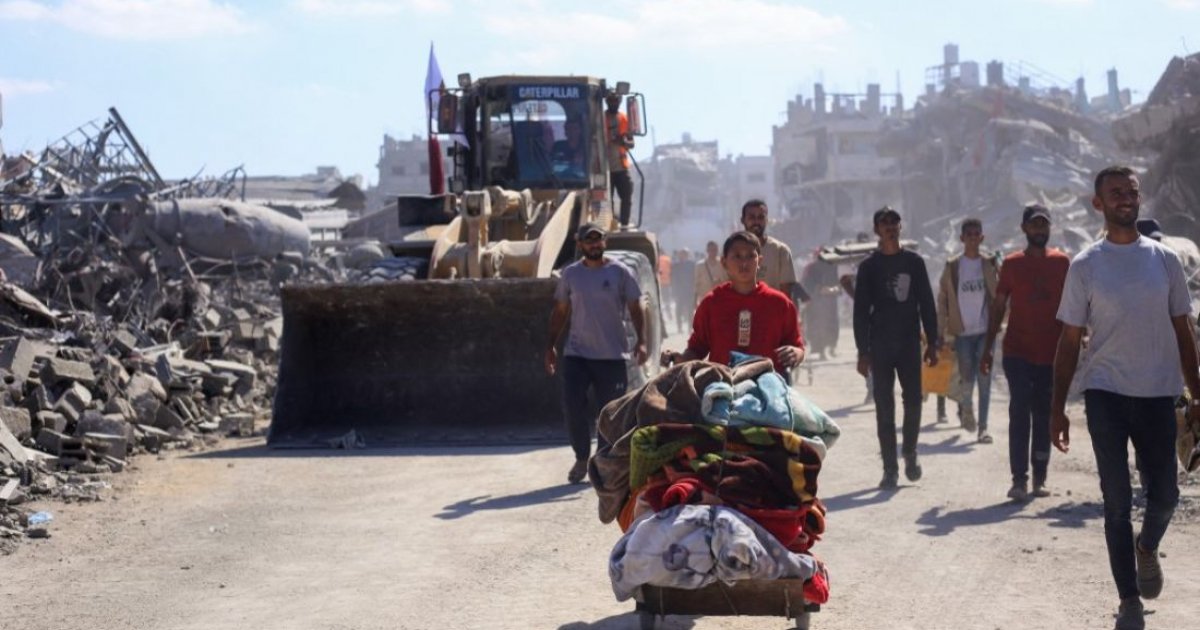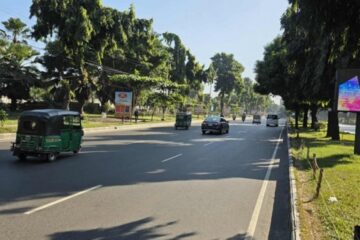It was a cool winter day in January 2013 when Yasser arrived at work. As the assistant chef at a hotel restaurant, Yasser had his hands full preparing a wedding feast.
Wajiha was there to celebrate her cousin’s big day, enjoying the food, music, and festivities. Just shy of 18, she had never really thought about marriage. But that night, on her way home, she experienced what she would later describe as “the most beautiful” coincidence.
As fate would have it, Yasser was finishing his shift at the same time. “We exchanged admiring glances. She looked so beautiful,” he recalled. “Two months later, I proposed to her,” said Yasser, blushing as he shared the memory. In April, they were married, and the following year, they welcomed their first son into the world.
That black day in 2023
Seven years later, Wajiha, now a housewife, was diagnosed with thyroid cancer. Her treatment required traveling all the way to Cairo and back for radioactive iodine therapy, as it was unavailable in Gaza.
“Despite all the difficulties, we tried to maintain our family routine,” said Yasser, until what he called that “black day” on October 7, 2023.
“That morning, Ammar was getting ready to go to school, wearing his uniform and carrying his backpack,” Yasser remembered. But then, “explosions echoed throughout the city.” School was canceled, and “horrifying news began pouring in,” recalled Yasser. For days, fear gripped the family as they navigated the chaos. Then, on October 13, the Israeli army ordered their immediate evacuation to the south.
15 months on the move
“We left everything behind,” said Yasser, reflecting on their escape.
The bombing was relentless, as they set off at the crack of dawn in their small car. They eventually reached the Nuseirat refugee camp, where Yasser went to gather supplies. But as he was leaving, a nearby house was struck by a bomb. Through the smoke, he saw what appeared to be three or four bodies, along with many injured people. “After that, seeing bodies in the streets became a normal sight everywhere I went,” he said.
The family found temporary shelter at a relative’s home, which, while a blessing, also presented its own challenges.
“The house was overcrowded, hosting more than 100 people — men, women, and children — all displaced, like us, searching for a safety that no longer existed,” said Yasser. There was no electricity, no water, no medicine, and no privacy.
When gas ran out, Yasser cooked on a camp stove with firewood. He baked bread in old-fashioned clay ovens, and Wajiha washed their clothes in buckets. Ammar struggled to keep up with his online lessons, constantly interrupted by internet outages. “Schools became shelters for the displaced, packed with children, who had lost both their books and their dreams,” Yasser said.
On October 18, they received the dreaded call. “My wife’s family home in Gaza City was targeted, and 18 members of her family were martyred, including her father, mother, sister, brother, brother’s wife, and their children.”
“The shock was unbearable,” Yasser recalled. “My wife collapsed. Her mental and physical health deteriorated. We couldn’t find medicine or doctors, as the hospitals were overwhelmed.”
After more than two months, Israel’s military ordered them to move further south to a “safe zone” in the Mawasi camp in Khan Younis. Exhausted and fearful — knowing people had already been killed in so-called safe zones — they reluctantly obeyed.
After finding no shelter, Yasser, his sick wife, and their son slept in the car, joined by Yasser’s mother and sister, who had joined them. With nothing but the bare essentials, they lacked food, water, soap, shampoo, toothpaste, and sanitary pads, relying on the kindness of locals for even their most basic needs. “We lived unforgettable days of deprivation,” Yasser said.
Despite the overwhelming hardships, the family made sure to mark special occasions, celebrating birthdays and anniversaries together. “We baked a simple cake with very few ingredients, just to hold onto the feeling of life,” Yasser explained. “Because holding onto hope was a necessity.”
In early 2024, Yasser managed to find a small apartment in Rafah, the southernmost city in Gaza, selling their car to cover the rent. Despite the dire circumstances, it felt like a small step towards stability.
Soon after, his mother and sister were able to escape through the Rafah border crossing to Cairo, paying an Egyptian broker $5,000 each for passage. His brother and his family followed soon after, but Yasser could not afford to bring his own family out.
A chance to get out
As Wajiha’s health continued to deteriorate, Yasser applied for urgent medical treatment for her care in Cairo. The request for the family’s application to travel together was denied — only Wajiha was permitted to go, but she refused to leave on her own. Yasser recalls that through tears, she said: “I have no life without you; if I die, I want to die among you.”
After three months, Yasser’s money ran out, and the family was evicted. A friend drove them to the central town of Zawaida, where they pitched a tent on their relatives’ property. For the next seven months, they endured harsh conditions, making long treks to fetch water, food, and medicine.
Then, on January 27, 2025, a humanitarian ceasefire allowed hundreds of thousands of Palestinians to return to northern Gaza. For Yasser, the moment felt like being “reborn after a long death,” even though the walk back took four hours. “The hope of returning to our beloved city was stronger than any pain,” he said.
But when Yasser, Wajiha, and Ammar returned, they found only ruins. “The air was thick with the smell of sorrow and ash,” Yasser recalled. “Our house had been looted and partially destroyed.”
Not long after cleaning up, fixing furniture, and housing friends who had lost everything, Yasser was stunned by what happened next. “We were awakened in the late hours of the night by the roar of Israeli aircraft bombing nearby,” he said. The war had returned, and all humanitarian aid was blocked from entering the enclave.
Famine hits Gaza
“During Ramadan, the month of mercy, famine descended upon us,” Yasser said. The price of one kilogram of flour surged to $30, forcing them to survive on just one meal a day for the next six months. Their bodies began to wither, and Wajiha suffered from seizures. “Every day, I went to distant, sometimes dangerous places, just to get a dose of medicine or some food, but it was never enough,” Yasser recounted.
On September 10, they received the next evacuation order. This time, they lingered for just a few more days, knowing it could be a final farewell. But when the bombing became unbearable, Yasser and his family once again fled — on foot, into the unknown.
They walked south to Deir al-Balah, where Yasser had to share the costs of an apartment with a friend, as rent prices had skyrocketed. Relatives pitched in to help, but the funds they transferred were charged at a 40% commission.
The next ceasefire came on October 10. Overcome with relief, Yasser and his family made their way back to Gaza City — only to face a heartbreaking reality. “The scale of destruction was greater than anything I had seen before,” Yasser said. Around their home, and even on the roof, lay unexploded artillery shells.
Civil defense teams eventually cleared the area, but as Yasser looked around, all he could see was rubble. It was clear that rebuilding this would take years, and even then, they would only be able to reclaim fragments of their former life.
”The hardest part of all is living every moment ready to die,” he said. Although the war has largely subsided, the suffering has only deepened. Yasser’s only hope is that Wajiha can resume her treatment, that Ammar can return to school, and that someday, they can finally live in peace again.



